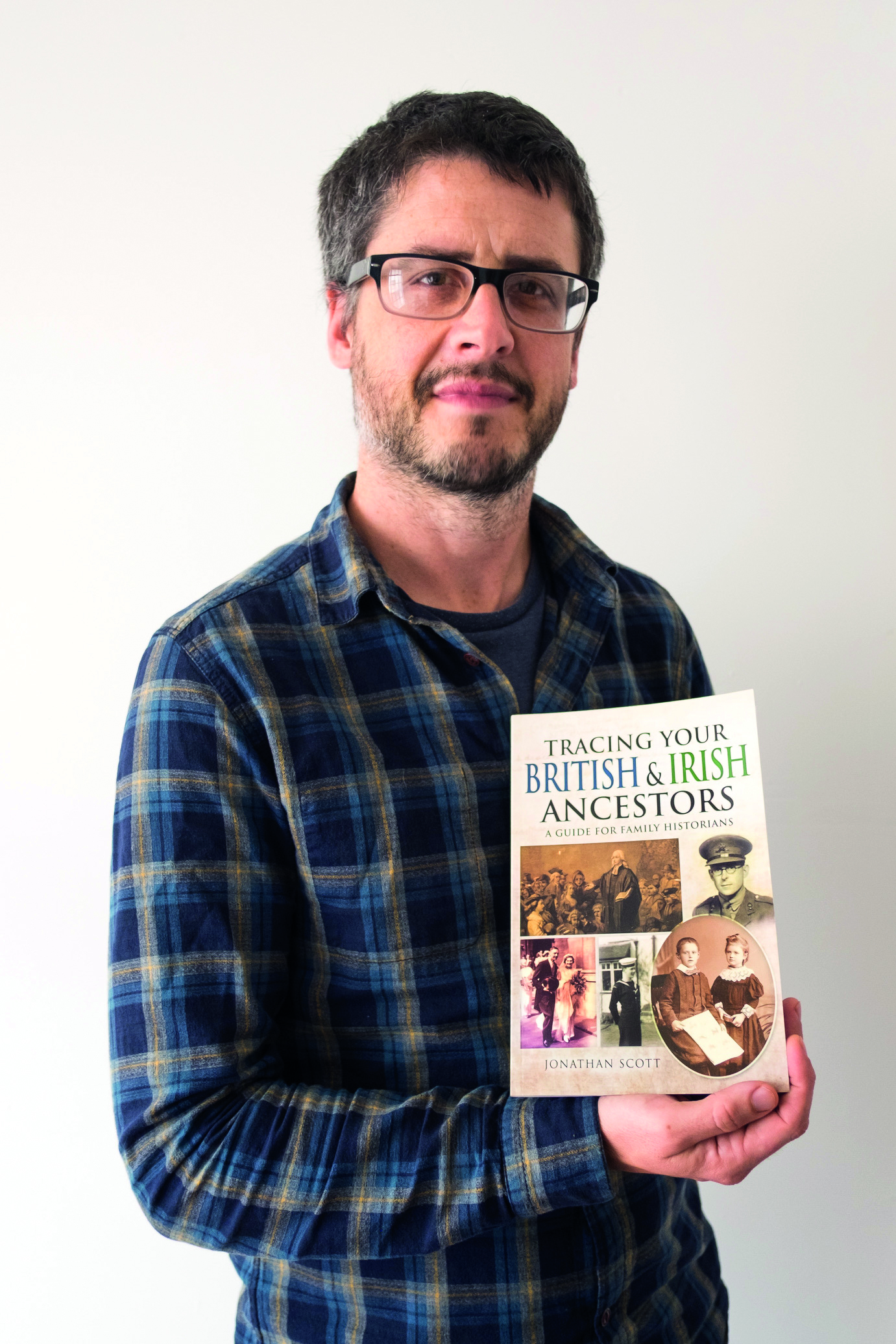How to find military hospital staff
If you have family members who were doctors, nurses or other staff members in a military hospital at any time up to the First World War, there’s lots of free resources online to help you find out more about their lives.
Before the 1850s, British Army medical services were organised on a regimental basis. Each regiment would have its own medical officer, and there would be male orderlies who staffed the military hospitals. The earliest records of British Army nurses in military hospitals begin in around 1820, although it is not until the later Victorian period that more detailed records of nursing were kept.
To give you an idea of the numbers involved, there were about 10,000 First World War nurses in Queen Alexandra’s Imperial Military Nursing Service (QAIMNS). Eventually the British Army, RAF and Royal Navy each had their own nursing services, and as such the records from each service are found in distinct series of records held at The National Archives (TNA) in Kew.
The best websites for finding military hospital staff
1. Military nursing records at The National Archives

This comprehensive research guide from The National Archives (TNA) in Kew gives advice about locating and accessing records of military nurses from the British Army, Royal Navy and RAF. Some material is held by the Ministry of Defence or the Red Cross, but all records held at TNA are listed with details of what they contain and whether they are available for download, such as the Queen Alexandra’s Royal Naval Nursing Service Reserve (1914–1919), available as digital microfilm or British Army nurses service records. This guide also gives some background to the history of military nursing with a useful bibliography.
2. RAMC in the Great War
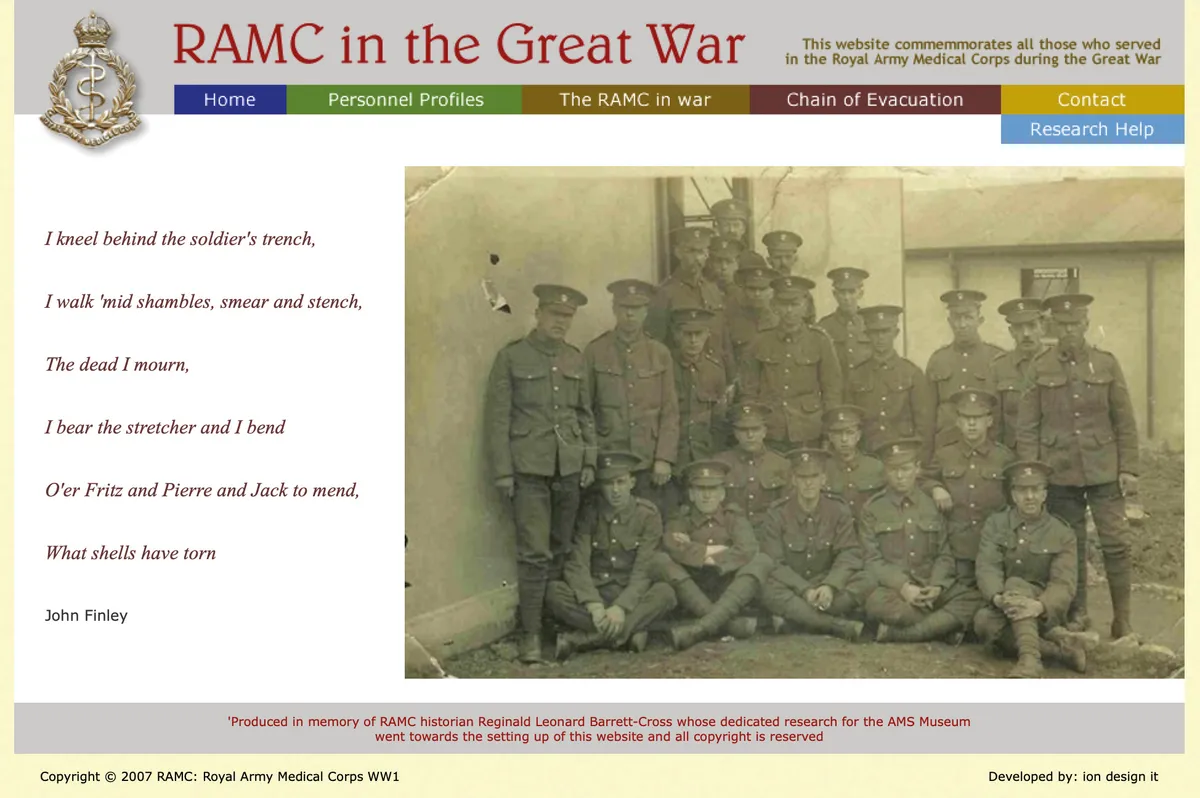
This website has been around for some time, but remains unmissable. It explores the history of the Royal Army Medical Corps (RAMC) during the First World War and was originally produced in memory of the RAMC historian Reginald Leonard Barrett-Cross, whose research for the Army Medical Services Museum (now the Museum of Military Medicine) powers the information at its heart. Click ‘Personnel Profiles’ and you can explore linked images of gravestones of fallen RAMC personnel by unit. Each includes place and date of birth, service number, date of death and often many other details. Exploring at random I came across the case of Edward Edmond Williams, who tragically died after falling down a hatchway aboard the hospital ship Elbani in 1919.
3. Scarlet Finders
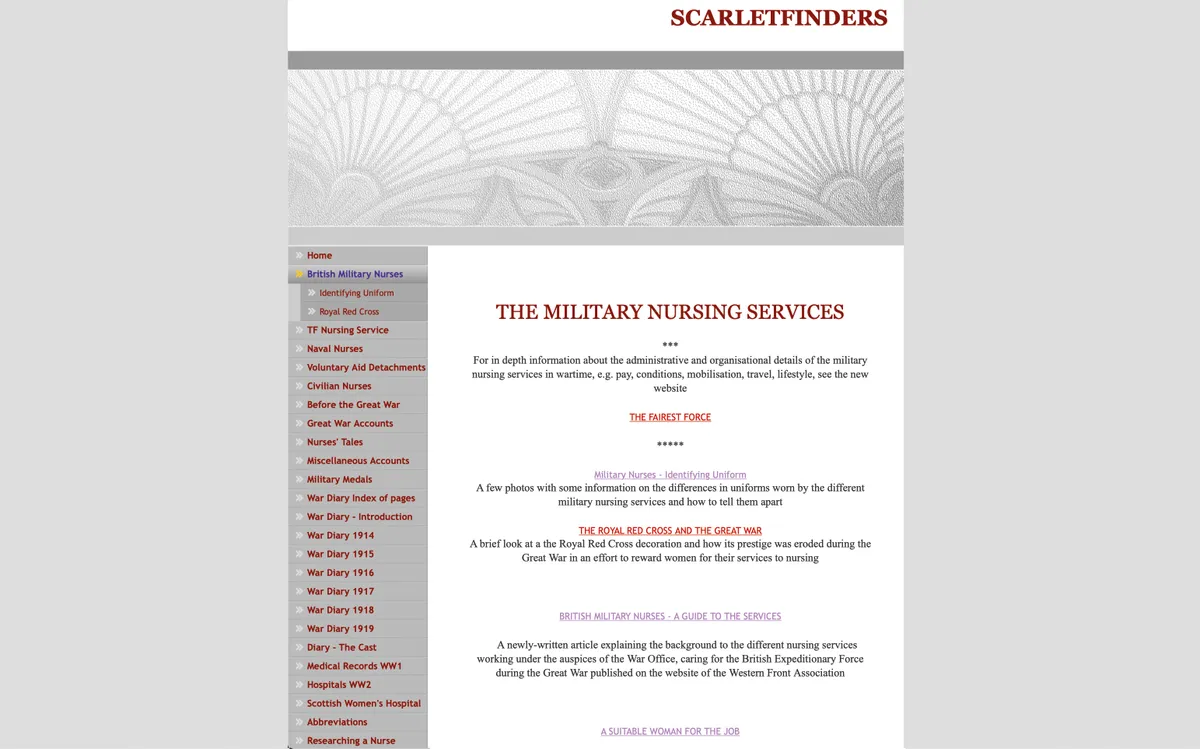
This excellent, long-running website offers in-depth advice for anyone researching British military nurses, as well as all sorts of first-hand accounts and wartime diaries. There are sections on naval nurses, Voluntary Aid Detachments and civilian nurses, alongside brief overviews of each of the nursing services – the Army Nursing Service, the Queen Alexandra’s Imperial Military Nursing Service, etc – plus research guides.
4. British Red Cross
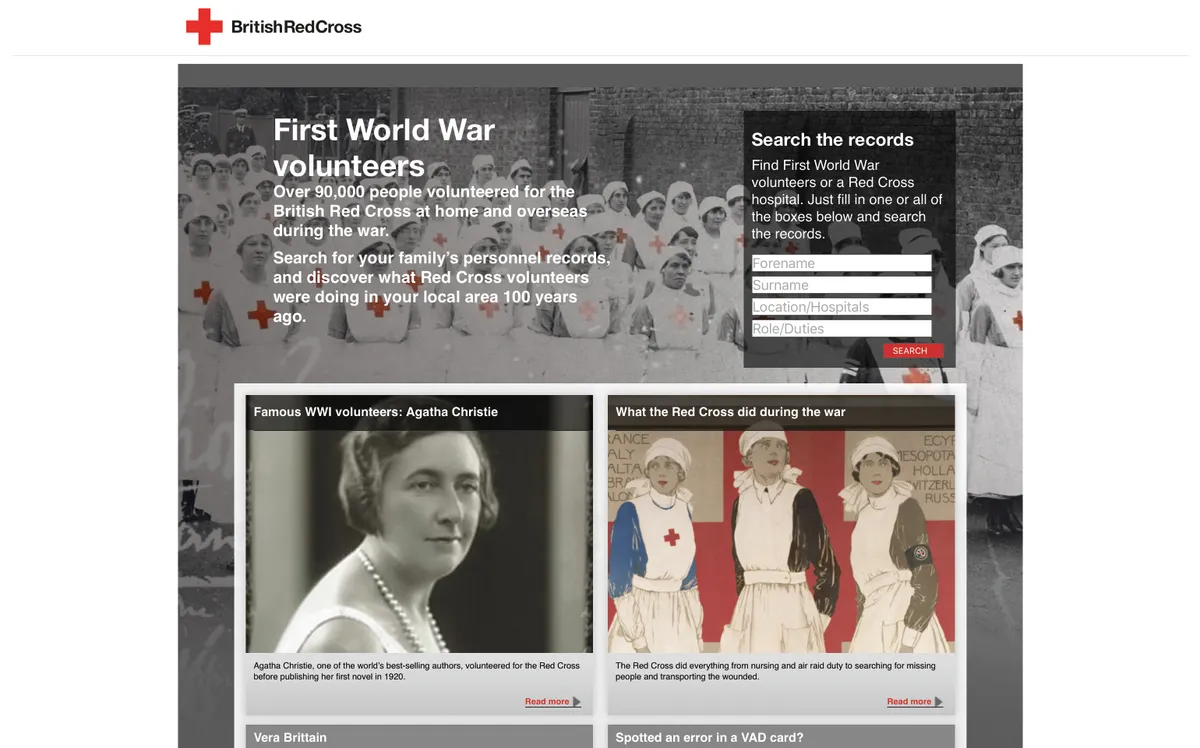
The Red Cross ran military hospitals during the First World War. Indeed there were more than 3,000 auxiliary military hospitals and convalescent homes across the UK, administered by county-level directors. This particular page leads to a free database of employment cards of more than 90,000 wartime volunteers in military hospitals, alongside articles describing Red Cross work, how the system was funded and administered, and famous volunteers such as Agatha Christie.
5. The Long, Long Trail
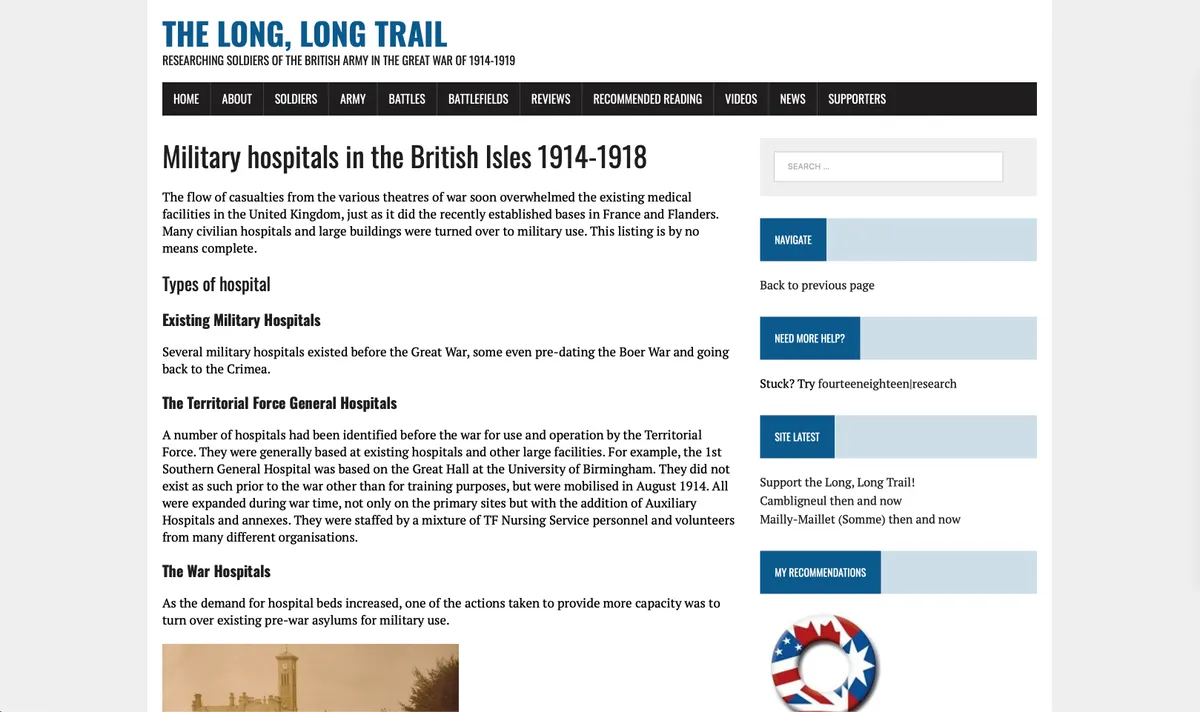
First World War website The Long, Long Trail has lots of useful information relating to this topic. This particular web address leads to a comprehensive list of military hospitals in the British Isles. Another good starting point is the page on the Royal Army Medical Corps, which in turns leads to sections describing the various units run by the RAMC. These included casualty clearing stations, territorial Mounted Brigade Field Ambulances, military hospitals in France and Flanders, and command depots.
6. Expert’s choice: Museum of Military Medicine

Chosen by Mark Simner, author of Sirdar and the Khalifa: Kitchener's Re-Conquest of the Sudan, 1896-98:
"Researching members of your family tree who served as doctors or nurses in the British Army is a fascinating aspect of military history. Perhaps the most famous branch of army healthcare is the Royal Army Medical Corps, formally established during the Peninsular War but with its roots in the 1660s. The Queen Alexandra’s Royal Army Nursing Corps was formed in 1902 as the Queen Alexandra’s Imperial Military Nursing Service, although nurses cared for wounded soldiers long before this date. Less well-known is the Royal Army Dental Corps, set up in 1921 in response to shortcomings in dental care during the First World War. Medical care was also provided to animals in army service, the Royal Army Veterinary Corps being created by warrant in 1903, but again army veterinary services predate this.
"So how do you research an ancestor who served in one of the above corps or their antecedents? An excellent staring point is the website of the Museum of Military Medicine. Although the museum does not hold individual service records (try The National Archives in Kew for those), it has records for regular commissioned officers in the RAMC until 1960, along with similar records for veterinary officers. The website contains useful information for researching individual personnel.
"The museum also offers a fee-paying service for research in its collections, and holds the archives of the four corps. Stretching back two centuries, these include diaries, maps, artwork and photographs. The museum can be contacted via enquiries@museumofmilitarymedicine.org.uk."
More websites for finding military hospital staff
7. Ancestry
The website’s military hospital records include Royal Navy medical journals (1817–1856).
8. The Fairest Force
This spin-off from Scarlet Finders explains the administrative and organisational aspects of the British military’s nursing services in France and Flanders during the First World War.
9. Findmypast
Only a small proportion of records from First World War military hospitals were kept and can be viewed here. Findmypast also has records from the archive of plastic surgeon Harold Gillies. Recipients of the Royal Red Cross award 1883-1996 can also be searched on the site.
10. The Internet Archive
Diary of a Nursing Sister on the Western Front, 1914–1915 is one of the countless books about military hospitals freely available to download.
11. QARANC
This website traces the history of nurses in the British Army, from the Queen Alexandra’s Imperial Military Nursing Service through to its modern incarnation (as of 1949) the Queen Alexandra’s Royal Army Nursing Corps.
12. Surgeons at Sea
Download PDF copies of journals and diaries compiled by Royal Navy surgeons and assistant surgeons who served on ships, in hospitals and naval brigades, in shore parties and on emigrant and convict ships between 1793 and 1880.
13. Wellcome Library
This research guide describes the manuscript collections relating to members of the Royal Army Medical Corps. There’s also a guide to primary sources for military hospitals.
Jonathan Scott is the author of A Dictionary of Family History
